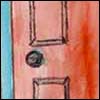I have a confession to make. I was a full-time student of chassidus (chassidic teaching) for almost twenty years. I'd been writing on the subject for about six years, and people were telling me that my articles and essays helped them understand its oft-times esoteric concepts. But I still didn't really "get it." Not until I met Jay Litvin — the writer, and the person.
We used to meet about once a month in Kfar Chabad, two lonely Americans in a shul-full of Israelified Russians. We shmoozed. I knew he was an accomplished writer, so I asked him to try his hand on a piece for Week In Review, a pamphlet of Chassidic teaching I was editing at the time.
Shortly thereafter, Jay sent me "Spiritual Warrior." I read it with growing amazement and joy. I must have yelled "Wow!" I'd been learning all my life about the beinoni, Rabbi Schneur Zalman of Liadi's depiction in his Tanya of the "intermediate man" that is "the attainable quality of every person, and which every person should strive for." I'd been attending classes on Tanya given by leading Chassidic scholars since the ninth grade. I'd given many a Tanya class myself. But here, for the first time in my life, I encountered a vivid, true-life description of what it's like to be a beinoni. And it wasn't even a chassid with a long white beard risking his life for Judaism in Stalinist Russia. It was of a "normal" person — a person like myself. Someone who worried about money, agonized over his love life, complained about his boss, fantasized about being rich and famous one day, and enjoyed a good cup of coffee on a sunny afternoon in a sidewalk café.
The most amazing thing was that Jay wasn't even trying to describe the beinoni. I don't even think that he was aware that he was doing that (though he'd certainly done his share of Tanya studying). He was just describing his own thoughts, feelings and experiences, his inner life as a Jew and a chassid.
I was privileged to work with Jay on more than sixty more articles. So there were more "Wow!"s to come. Like when I first read "A Different Kind of Darkness" and gained a deeper understanding of the Kabbalistic idea of tzimtzum. Or when I read "From Under the Covers" and entered into the mind of a person who not only understood the Lubavitcher Rebbe's unique conception of what a "mitzvah" is, but also lived it. Or seeing Chassidism's understanding of teshuvah depicted in Jay's "Forgiveness." And in virtually every one of his articles, some aspect of what it's like to have a relationship with G‑d. "A relationship with G‑d", "connection with G‑d" — how many times in the last fifteen years have I written those words! But what do they mean? What do they really mean?
Again, explaining these concepts was not Jay's intention. He was just telling us what is was like to be Jay Litvin the husband, Jay Litvin the parent, Jay Litvin the cancer patient.
Contrary to what his articles sometimes suggest, Jay was not a person who enjoyed exposing his soul for all the world to see. He agonized over each of his articles, and often tried (with limited success, lucky for us) to minimize the self-exposure and the mass invasion of his and his family's privacy. But once the cat was out of the bag, there was no turning back. His readers/disciples clamored for more, and refused to settle for anything less than another and another bona fide "Jay Litvin Article." And Jay couldn't refuse. Because he came to believe that this was an integral part of his mission in life. And besides, he was a really nice guy who just didn't know how to say "No."
Thank you Jay. I'm going to miss you.






Join the Discussion